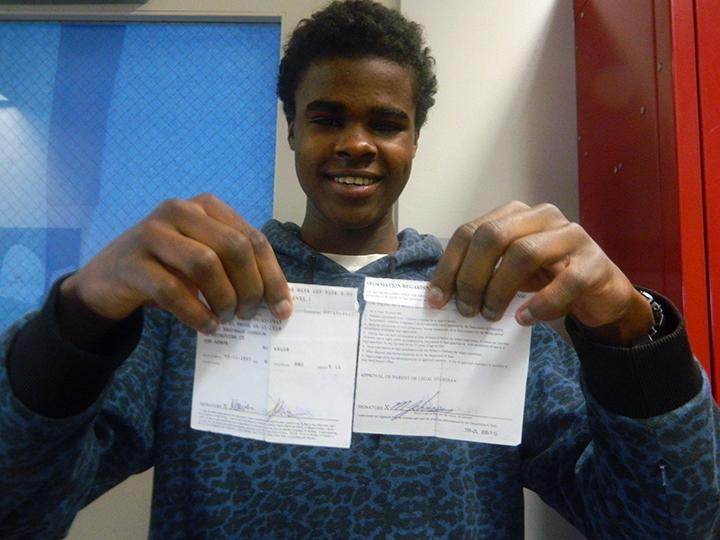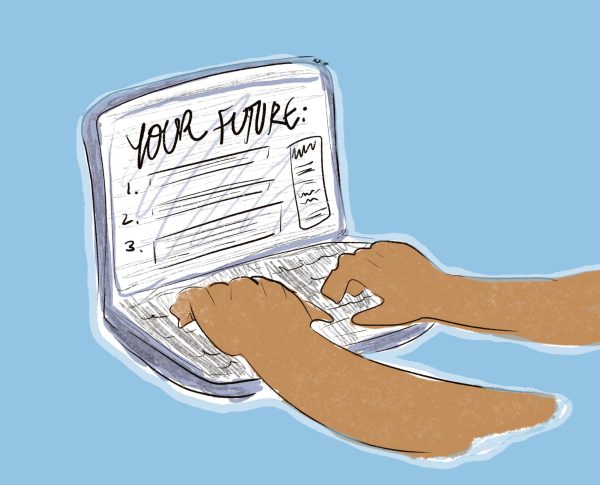Waiting To Drive
Sixteen year old Community junior Marius Johnson does not have his driver’s license. In 1983 about half of all 16 year olds had their licenses, but today, Johnson is among a growing number of teenagers getting their licenses later on in life. This trend of teenagers getting their licenses has been a very steep one, with 46% of 16 year olds having their licenses in 1983, to 31% in 2008, and 28% in 2010.
Dr. Michael Sivak and Brandon Schoettle have been studying this trend at the University of Michigan Transportation Research Institute. “It is something that seems to be continuing and not just applying to 16 year olds but 17, 18, and 19 year olds. We have even seen a drop in the number of people in their 20s getting licenses,” said Schoettle. He believes that cultural shifts have really affected the number of young people getting their licenses.
He conducted a survey to find out exactly what these cultural shifts are, and he found three main ones that stood out. “One of the top reasons they gave us was they were too busy and didn’t have time,” said Scholettle. This reason applies to Community senior Katie Taub.
“The only reason I have not gotten my license yet is because I have a job, I was gone for 7 weeks this summer and there’s never time for me to go out and drive,” said Taub.
Another reason Schoettle found that was causing young people to wait longer to get their licenses is was the cost of owning and maintaining a vehicle. In 1983, in the United States, the average car cost $8,500, and it was about $1.24 for a gallon of gas. By contrast in 2011, the average car cost $28,150, and the average price for a gallon of gas in the United States was $3.52. “Owning and maintaining a car was a lot cheaper in previous generations,” said Schoettle.
The final reason that stood out to Schoettle and Dr. Sivak was that many young people were able to get transportation from others. “There was not the same amount of access to public transportation that we have today,” said Schoettle.
Even though from Schoettle and Dr. Sivak’s study it appears that this trend has been universally the same across all demographics and areas in the United States; Schoettle thinks the reasoning may be different. “Teens that live in big cities have access to public transportation so they don’t need to drive. Whereas, teens who live rural areas probably do need to drive, but can most likely not afford to own a car,” said Schoettle.
Schoettle and Dr. Sivak observed the same trend in other countries similar to the United States that have modern economies. “In most European countries and Japan, the same thing is happening,” said Schoettle.
However, they observed a different trend in countries with developing economies: all demographics were getting more licenses. Schoettle attributes that to the fact that many people who live in developing economies can afford to own a car where before they could not.
Even though Schoettle observes this trend as a continuing one throughout the years, he believes it has a possibility of changing. “We think the economy played a role, so as the economy starts to turn around, we think things might change. People who were in their teens who don’t have licenses might change their minds when they are in their 20s and 30s because then they will be able to afford it,” said Schoettle.
While Taub and Johnson, like the growing majority of teenagers, do not have their licenses, they do not feel it has inhibited them. “I walk everywhere, the farthest walk I ever need to go on is to Community and that is only 40 minutes from my house,” said Taub.
Johnson doesn’t feel that not having a license has limited him, because he believes even if he had a license he would not be able to drive a lot. “We only have one car in my family, so my parents are usually the ones driving it,” said Johnson.
That being said, both Taub and Johnson want a license and plan to get one before they graduate.










